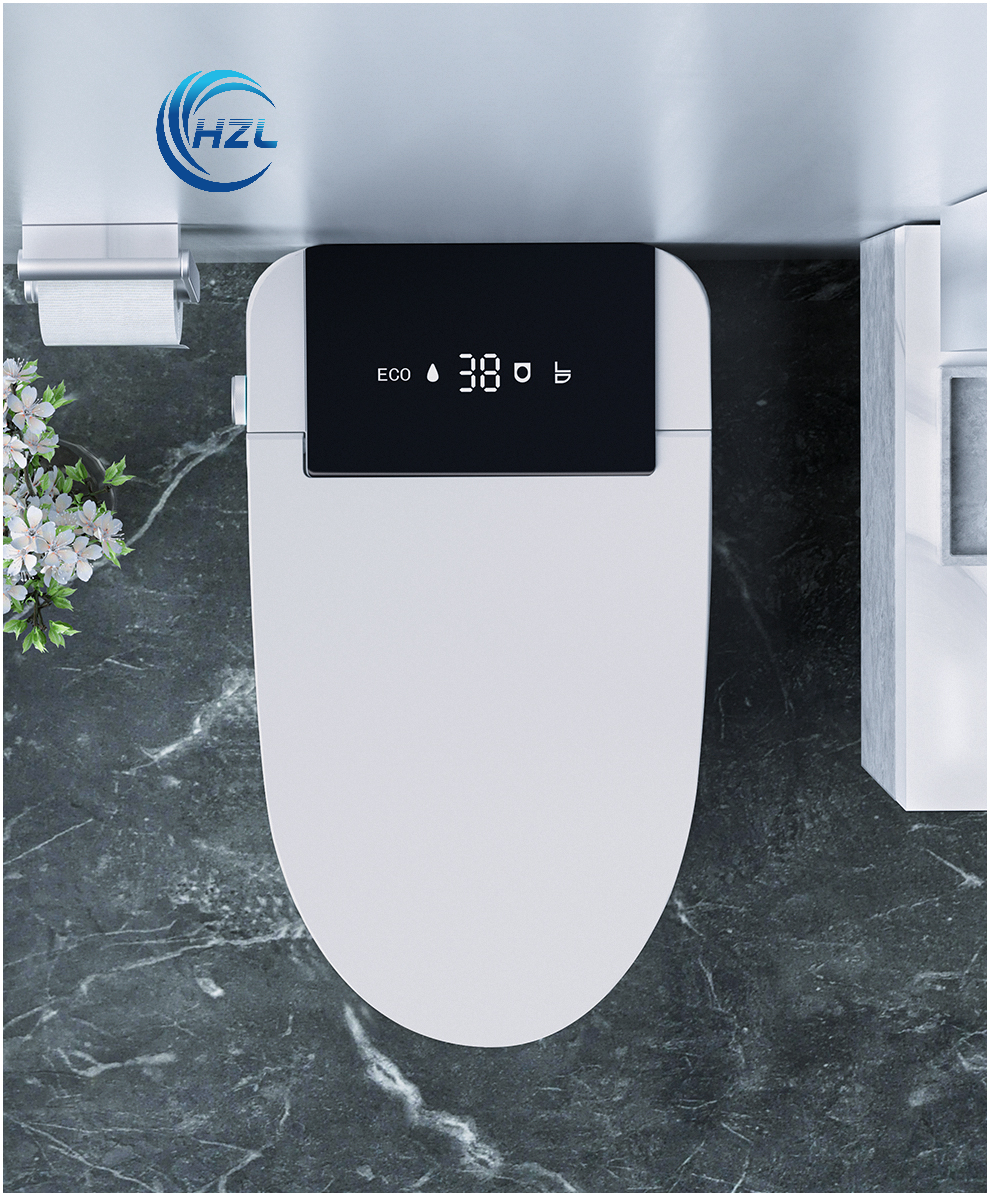Products
The field is required.

ABOUTstainlesssteel
Dongguan Haizhilan Intelligent Technology Co., Ltd. is a factory specializing in the production of smart toilets, stainless steel toilets, ceramic toilets and other bathroom accessories. It has a modern office environment and first-class production facilities. It has served more than 50 companies across the country for 12 years and has received unanimous praise. In order to better serve foreign customers, the Foreign Trade Department was established in 2024, and Haizhilan Intelligent Technology will undertake foreign trade business. We always adhere to the core values of "innovation, integrity, professionalism, and excellence" and are committed to providing customers with high-quality products and services.
Smart Toilets in 2030 Cutting Edge Technologies That Will Transform Personal Health Monitoring and Water Conservation
2025-05-29
Picture a world in which your toilet doesn’t just flush away your waste, but also serves as a crucial tool in monitoring and maintaining your health, as well as in conserving water. According to Smart Toilets 2030, smart toilets are set to transform both personal hygiene and the environment with their advanced technology, offering live health stats while conserving water. These high tech fittings will turn bathrooms into rooms for health and sustainability, and give users more information about their health than ever before, at the same time as saving the world some much needed water.The project will feature:_Digital Shower Technology – diagnostic display showing water usage to the user with a traffic light system for energy efficiency.
Advanced Health Monitoring
Sensory smart toilets in 2030 will be able to automatically test urine and stool samples for a range of health markers. These sensors will be capable of identifying early signs of disease, including diabetes, kidney disease, and, in some cases, even cancer. With ongoing health monitoring, smart toilets can allow users to monitor their bodies’ changes over time, for more proactive healthcare.
What’s more, by adding artificial intelligence (AI), these toilets will be able to compare user data to a comprehensive medical database, in order to offer up bepoke health advice. For example, if the toilet notices unusual amounts of glucose in urine, it may advise a trip to the doctor. This integrated technology-healthcare fusion will enable people to manage their own health as never before.
Innovations in water saver
Smart toilets are going to be key players in tackling water scarcity, which is a growing worldwide concern. And by 2030, the new toilets will bring improved water-saving features, with dual-flush designs using less water to remove liquid waste and a little more to remove solid waste. In addition to all the aforementioned, smart toilets are to be equipped with sensors that would measure the appropriate amount of water to be used in each flush, saving a lot of water from being wasted irresponsibly.
Some may even recycle greywater from sinks and showers for flushing, slowing freshwater use even more. These changes aren't just going to help save on your water bills, but also help reduce your ecological footprint, making smart toilets a musthave item in an environmentally conscious household.
Connectivity and data integration
Smart toilets will fit within the larger Home IoT category of products, incorporating and communicating with other smart products in the home. Consumers will be able to view their health information on their smartphone apps and easily share data with their health care providers. This connection will also allow for remote diagnostics and telemedicine, allowing more efficient healthcare.
There will appropriately be a focus on security of the data, with strong encryption approaches to ensure that private health information is kept private. The users will be in complete control of the data and select who may have access and for what purpose. Together with that level of integration and security, smart toilets will become a staple of any contemporary smart home.
Easy to Use and Reach
Smart toilets: By 2030, smart toilets will have primed for enhanced user convenience and accessibility. Cooler touch and voice activated features will all improve hygiene and ease of use. These toilets will also accommodate those with special needs with height that can be adjusted to their comfort, provisional handles along with voice guidance to use the toilet.
Aesthetics have not been forgotten in the design of this atmospheric-friendly product, which has been crafted for the modern look of bathrooms today. Be it a high-end home or public meeting place, the smart toilet will provide comfort, function and style for all users.
Environmental Impact and Sustainability771 Impact Environmental pollution has been on the increase and the technology for conversion of plant waste to others forms that are useful to man aims at reducing this pollution to the barest minimum.
In addition to saving water, intelligent toilets will also make other contributions to the sustainability of the environment. Some systems may have waste-to-energy components, where human waste gets processed into biogas or fertilizer. This development will transform lavatories into tiny power stations that generate electricity from urine and could help to light schools in water-stressed developing countries.
Additionally, the smart toilets will have an eco-friendly manufacturing, which will reduce the concerns about the carbon footprints. From the way they’re produced to how they will be thrown away- the plan is for these fixtures to be created with the planet in mind as a complement to the worldwide fight against climate and sustainable living.
Advanced Health Monitoring
Sensory smart toilets in 2030 will be able to automatically test urine and stool samples for a range of health markers. These sensors will be capable of identifying early signs of disease, including diabetes, kidney disease, and, in some cases, even cancer. With ongoing health monitoring, smart toilets can allow users to monitor their bodies’ changes over time, for more proactive healthcare.
What’s more, by adding artificial intelligence (AI), these toilets will be able to compare user data to a comprehensive medical database, in order to offer up bepoke health advice. For example, if the toilet notices unusual amounts of glucose in urine, it may advise a trip to the doctor. This integrated technology-healthcare fusion will enable people to manage their own health as never before.
Innovations in water saver
Smart toilets are going to be key players in tackling water scarcity, which is a growing worldwide concern. And by 2030, the new toilets will bring improved water-saving features, with dual-flush designs using less water to remove liquid waste and a little more to remove solid waste. In addition to all the aforementioned, smart toilets are to be equipped with sensors that would measure the appropriate amount of water to be used in each flush, saving a lot of water from being wasted irresponsibly.
Some may even recycle greywater from sinks and showers for flushing, slowing freshwater use even more. These changes aren't just going to help save on your water bills, but also help reduce your ecological footprint, making smart toilets a musthave item in an environmentally conscious household.
Connectivity and data integration
Smart toilets will fit within the larger Home IoT category of products, incorporating and communicating with other smart products in the home. Consumers will be able to view their health information on their smartphone apps and easily share data with their health care providers. This connection will also allow for remote diagnostics and telemedicine, allowing more efficient healthcare.
There will appropriately be a focus on security of the data, with strong encryption approaches to ensure that private health information is kept private. The users will be in complete control of the data and select who may have access and for what purpose. Together with that level of integration and security, smart toilets will become a staple of any contemporary smart home.
Easy to Use and Reach
Smart toilets: By 2030, smart toilets will have primed for enhanced user convenience and accessibility. Cooler touch and voice activated features will all improve hygiene and ease of use. These toilets will also accommodate those with special needs with height that can be adjusted to their comfort, provisional handles along with voice guidance to use the toilet.
Aesthetics have not been forgotten in the design of this atmospheric-friendly product, which has been crafted for the modern look of bathrooms today. Be it a high-end home or public meeting place, the smart toilet will provide comfort, function and style for all users.
Environmental Impact and Sustainability771 Impact Environmental pollution has been on the increase and the technology for conversion of plant waste to others forms that are useful to man aims at reducing this pollution to the barest minimum.
In addition to saving water, intelligent toilets will also make other contributions to the sustainability of the environment. Some systems may have waste-to-energy components, where human waste gets processed into biogas or fertilizer. This development will transform lavatories into tiny power stations that generate electricity from urine and could help to light schools in water-stressed developing countries.
Additionally, the smart toilets will have an eco-friendly manufacturing, which will reduce the concerns about the carbon footprints. From the way they’re produced to how they will be thrown away- the plan is for these fixtures to be created with the planet in mind as a complement to the worldwide fight against climate and sustainable living.
SUBSCRIBE
INQUIRY


